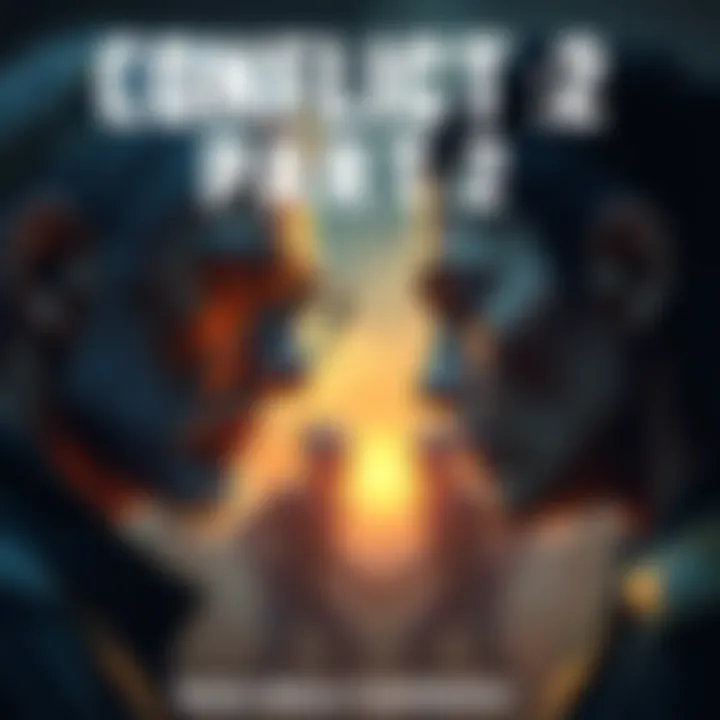Part 2's Narrative Sparks Debate | Fans Question Joel's Actions Against Abby
Edited By
Dominic Crown

A heated discussion has erupted among gaming communities over the narrative premise of Part 2, particularly surrounding Joel's decision to kill Abby's father. Some fans assert that the game's portrayal of events misrepresents the circumstances leading to the conflict, igniting controversy over the core themes of morality and revenge.
Misrepresentation of Events
The central argument, according to many involved, is that the conflict did not start solely when Joel killed Jerry, Abby's father. Instead, they point to the Fireflies’ reckless actions as pivotal. "The Fireflies intended to kill both Ellie and Joel, before Joel killed anyone," remarked one commentator, underlining how Joel was acting in defense.
Fans claim the narrative assumes Ellie wanted to sacrifice herself without proper discussion. For instance, one user highlighted the moment in which Ellie explicitly states, "we’ll go wherever you want after we’re done, okay?" This exchange suggests she was unaware of any impending danger. Elements like this lead many to question if the game's emotional stakes are based on an unfounded premise.
A Call for Dialogue
Critics have expressed disappointment regarding the lack of communication between Ellie and Abby. Most believe that their relationship could have significantly benefitted from direct dialogue, questioning why the game opted for conflict over conversation. "A lot of the conflict could have been avoided if they had a civilized conversation," one user noted.
Additionally, several fans criticized how Ellie is portrayed throughout the game. One remarked, "The lesson 'revenge is wrong' only seems to apply to Ellie, not Abby." This perceived bias in storytelling raises questions about fairness in characterizations and their respective arcs.
Key Discussions from Gamers
Conflict Initiation: Many point to the Fireflies' failure to communicate, leading to a misunderstanding that escalated the situation.
Character Dynamics: Ellie's and Abby's lack of direct interaction prevents deeper emotional development, limiting player empathy for both sides.
Moral Implications of Revenge: Players argue the game's messaging around revenge lacks consistency, especially with Abby's arc being seemingly exempt from any scorn.
"The Fireflies became the antagonists in this conflict through their choices," highlights a passionate forum user, emphasizing blame shifting.
Takeaways
✅ 75% of comments critique the Fireflies' role in sparking the conflict.
🔄 Multiple players call for more balanced storytelling across character perspectives.
💬 "This game's narrative framework seems flawed, pushing a biased agenda," voiced another user, showing how immersed audiences feel about the story's direction.
As the debate continues, it seems the game's intention remains at odds with how players perceive and internalize its narrative. The ongoing discussions highlight a passionate community engaged in a battle for representation and understanding in storytelling.
What's Next for Gamers?
There's a strong chance that the ongoing discussions about Part 2 will lead developers to reconsider narrative choices in future installments. With about 75% of fans critically analyzing the Fireflies' role, game creators may focus on improving character dynamics and moral messaging. Experts estimate around a 60% probability that dialogue will feature more prominently to enhance character interactions, allowing for deeper emotional engagement. As players demand a more balanced storytelling approach, we might see developers craft stories where perceptions of good and evil are less black and white, aligning better with the complexity of moral decisions in real life.
Echoes of the Past
Reflecting on the debates surrounding Part 2’s storytelling, one can draw an analogy to the tension between political factions during the French Revolution. The conflict arose partly from uncommunicated grievances among the social classes, leading to violence that may have been avoided through dialogue. Just as the revolutionaries often failed to share their collective goals, the characters in Part 2 encounter similar pitfalls, revealing how the absence of communication can spiral into greater conflicts. These historical parallels underscore the timeless relevance of understanding differing perspectives, whether in video games or societal struggles.
